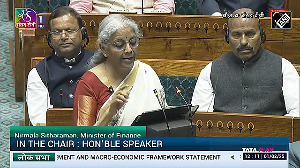India generated 3.3 lakh tonnes of e-waste in 2007, which is expected to touch 4.7 lakh tonnes by 2011. Dumping by developed countries and the informal way of recycling were aggravating the problem, says the first-ever study conducted by the Manufacturers' Association for Information Technology and GTZ, the German Technical Cooperation agency.
Electronic waste or "Waste Electrical and Electronic Equipment", according to the WEEE directive of the European Commission, is defined as waste material consisting of any broken or unwanted electrical or electronic appliances. However, the MAIT-GTZ assessment study focused only on waste from computers, televisions and mobile handsets.
While an estimated 3.3 lakh tonnes of e-waste is generated in India, about 50,000 tonnes is imported or dumped in the country. Only 40 per cent of India's total e-waste is recycled, and the rest is left in storehouses due to an inefficient collection system.
Currently e-waste recycling, especially processing, remains concentrated in the informal sector, which due to poor processing technologies and small capacities have failed to significantly control pollution and environmental degradation.
The e-waste assessment study covered over 200 corporate houses and close to 400 households. According to the study, 94 per cent of the organisations surveyed did not have any policy on disposal of obsolete IT products/e-waste.
Vinnie Mehta, executive director, MAIT said, "The situation could assume alarming proportions. Therefore it is time we paid serious attention to the issue and took corrective action to contain this problem."
He further said that it was essential that the electronics industry encouraged the reuse of obsolete electronic products. "Institutional users must mandatorily put in place a policy on e-waste management and disposal of obsolete electronic equipment," Mehta added.
MAIT has appealed to the government to adopt an inclusive model by identifying and defining the roles of each stakeholder including vendors, users, recyclers and the regulator for environment-friendly recycling.
"The informal recyclers should also be included in this model and an awareness campaign put in place to ensure that the right information on e-waste reaches all stakeholders in a timely manner," Mehta said.
Western India has been found to generate the largest portion, about 35 per cent, of the e-waste in the country. The south is at a close second at 30 per cent, while the north and east account for 21 per cent and 14 per cent respectively. North India is however, the leading processer of e-waste in the country






 © 2025
© 2025